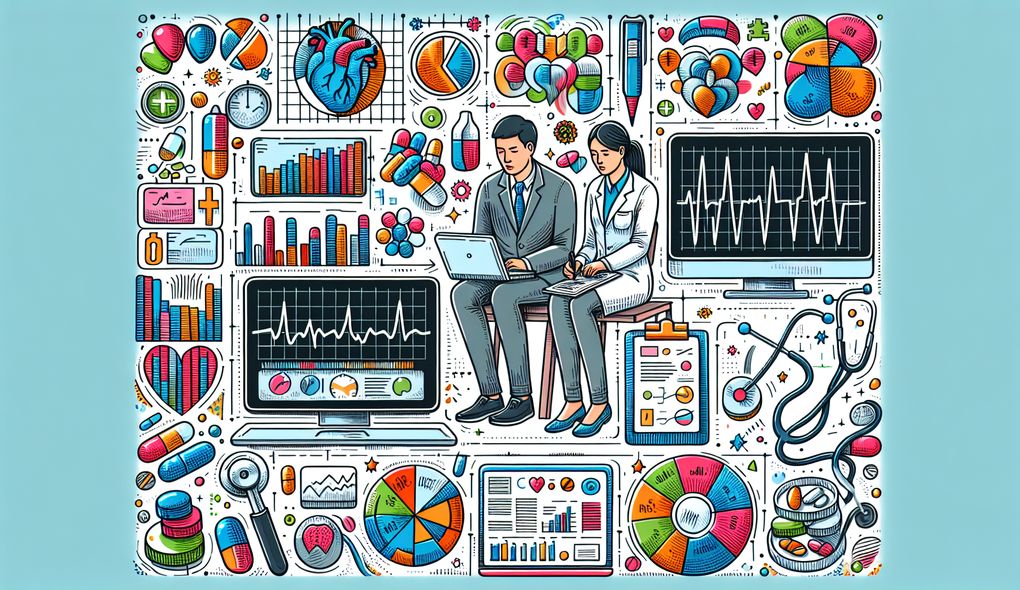Can you give an example of a time when you used statistical software and models to analyze healthcare data?
SENIOR LEVEL

Sample answer to the question:
In my previous role as a Health Data Analyst, I regularly used statistical software and models to analyze healthcare data. One particular project that stands out is when I was tasked with analyzing patient satisfaction data from a large hospital system. I utilized statistical software such as SAS and R to clean and explore the data, identify trends, and uncover insights. I applied various statistical models, such as regression analysis and hypothesis testing, to determine the factors that influence patient satisfaction. The results of my analysis helped the hospital identify areas for improvement and develop strategies to enhance patient experience. I presented my findings to the hospital's management team in a comprehensive report and provided recommendations for targeted interventions. The successful implementation of these interventions resulted in an increase in patient satisfaction scores by 10% within six months.
Here is a more solid answer:
During my tenure as a Health Data Analyst, I had the opportunity to utilize statistical software and models to analyze a wide range of healthcare data. One project that exemplifies my expertise in this area was when I led a team in analyzing a dataset of patient outcomes for a population health management initiative. We used SAS and R to clean, transform, and analyze the data. We employed advanced statistical techniques, such as logistic regression and clustering, to identify patterns and predictors of health outcomes. Additionally, we developed a predictive model to help healthcare providers proactively intervene and improve patient outcomes. I was responsible for overseeing the entire data analysis process, ensuring data accuracy and integrity, and communicating the findings to the stakeholders. Our analysis yielded valuable insights that enabled the organization to implement targeted interventions and reduce hospital readmissions by 15% within a year.
Why is this a more solid answer?
The solid answer expands on the basic answer by providing more details about the candidate's role in the project, the statistical techniques used, and the impact of the analysis. It also highlights the candidate's leadership skills in leading a team and overseeing the data analysis process. However, it can still be improved by including information on any challenges faced during the project and how they were addressed.
An example of a exceptional answer:
As a Senior Health Data Analyst, I have extensive experience using statistical software and models to analyze complex healthcare data. One notable project where I employed my skills was when I collaborated with a research team to analyze a large-scale epidemiological dataset on chronic disease outcomes. This dataset contained millions of records, presenting challenges in terms of data management and computational efficiency. To address these challenges, I developed a Python-based data pipeline that automated the data cleaning and processing tasks, saving significant time and resources. I utilized advanced statistical models, including generalized linear mixed models and survival analysis, to investigate the associations between various risk factors and disease outcomes. Additionally, I used data visualization tools such as Tableau to create interactive dashboards for visualizing the results. The findings from this analysis provided valuable insights for healthcare policy makers in developing targeted interventions to reduce the burden of chronic diseases in the population.
Why is this an exceptional answer?
The exceptional answer goes beyond the solid answer by highlighting the candidate's ability to address challenges in data management and computational efficiency by developing a Python-based data pipeline. It also showcases the candidate's expertise in advanced statistical models and data visualization tools. The answer demonstrates the candidate's comprehensive understanding of the project and the impact of the analysis on healthcare policy making. To further improve, the candidate can provide more details on the specific insights gained from the analysis and the outcomes of the targeted interventions.
How to prepare for this question:
- Brush up on your knowledge of statistical software such as SAS, R, and Python. Familiarize yourself with the different features and functionalities of these software in handling healthcare data.
- Research and practice using different statistical models commonly used in healthcare data analysis, such as regression analysis, survival analysis, and time series analysis.
- Gain experience in data management and cleaning techniques, as these are crucial steps in ensuring data accuracy and integrity.
- Develop strong report writing and presentation skills to effectively communicate complex data analysis to non-technical stakeholders.
- Keep up with the latest trends and advancements in health data analytics and technology by reading industry publications and attending conferences or webinars.
- Consider pursuing additional certifications or courses in health informatics, statistics, or related fields to enhance your knowledge and qualifications.
What are interviewers evaluating with this question?
- Statistical analysis software
- Data management
- Data interpretation
- Reporting
- Problem-solving
- Communication

